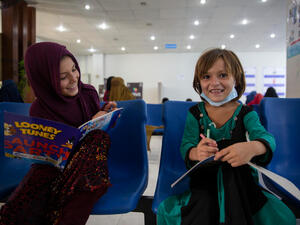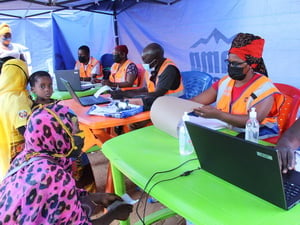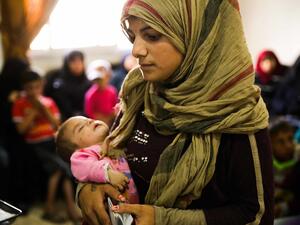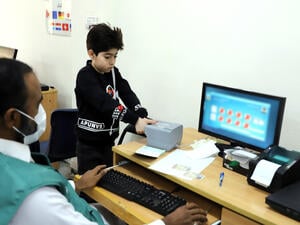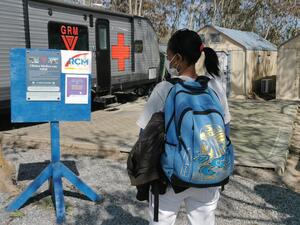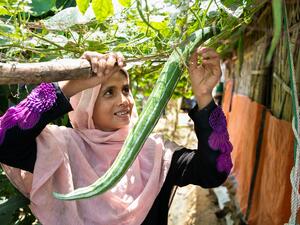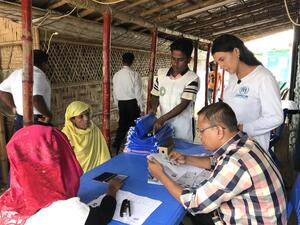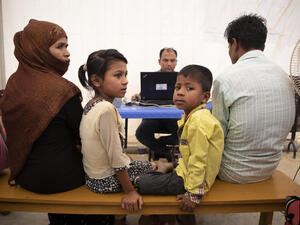The registration of refugees in Zambia passes another milestone
The registration of refugees in Zambia passes another milestone

Refugees in Meheba wait to take part in a registration exercise.
LUSAKA, Zambia, March 7 (UNHCR) - The effort to record details on every refugee in Zambia has passed another milestone with the conduct of a registration operation by the Zambian government and UNHCR in the refugee settlement of Meheba in the north-west of the country.
UN refugee agency staff worked in the camp this month to update statistics on the specific characteristics of the refugee population, including age, gender, place of origin, marital status and other details. Upon completion, the refugees will be given new identity cards.
"The purpose is to collect and verify information about all the refugees and their families," said James Lynch, UNHCR representative in Zambia. "Having an updated and accurate database of all refugees will help the Zambian government, UNHCR and support agencies to better offer legal protection and to plan for assistance measures."
Zambia currently hosts about 113,000 refugees, although the exact figure will only be known when registration is completed throughout the country. Registration in two refugee camps in the north of Zambia that host mainly Congolese will come later because many residents are returning home under a UNHCR-facilitated repatriation programme.
More than 59,000 refugees are in four camps in the Western, North Western, Northern and Luapula provinces, while 54,000 refugees reside outside the camps. The largest portion are Congolese refugees - some 55,000 - following the voluntary repatriation of about 74,000 Angolan refugees between 2003 and early 2007. Other refugees are from Rwanda, Burundi and Somalia.
After a registration last year of refugees in urban areas like Lusaka and "self-settled" Angolan refugees in the provinces, the exercise moved this January to Mayukwayukwa refugee settlement in western Zambia. A total of 10,280 people were registered in the camp.
At the start of March, staff from UNHCR and the Home Affairs Ministry began the exercise in Meheba, which was established in 1971 and is among the oldest refugee camps in Africa. It hosts refugees from Angola, Democratic Republic of the Congo, Rwanda, Burundi and Somalia.
"UNHCR is interested in making sure that all the refugees are documented. Registration is a protection tool as there is a link between accurate registration and durable solutions," said Lynch.
Mendes Munguambe, UNHCR field officer in Solwezi, said refugees had cooperated in the exercise, which formally concludes on 10 March and began by identifying each individual with a wristband so there could be no double-counting: "We started with wrist banding and then conducted the actual registration and data capturing."
Individuals must be correctly identified to ensure there is accurate information on their particular needs, such as food rations or vulnerable family situations. It is a vital part of UNHCR's role in both protecting refugees and finding long-term solutions for them.
"Old ration cards will be invalidated upon receipt of a new family card and refugees will be provided with a new ID card," said National Registration Officer Kuliwa Siakwasia, one of 20 people who conducted the registration.
By Kelvin Shimo in Lusaka, Zambia


